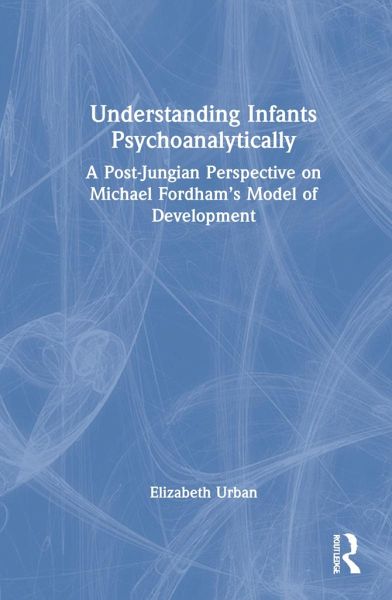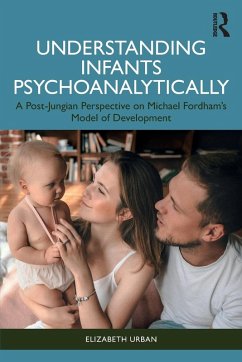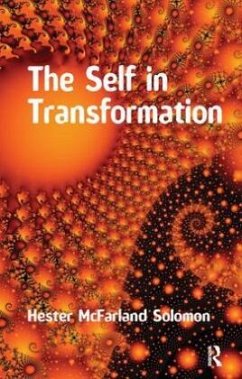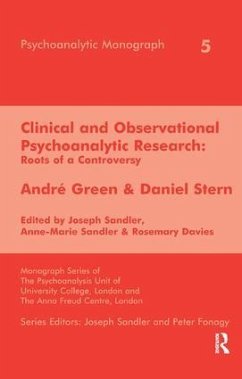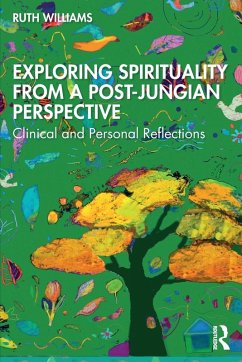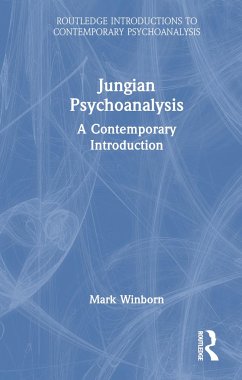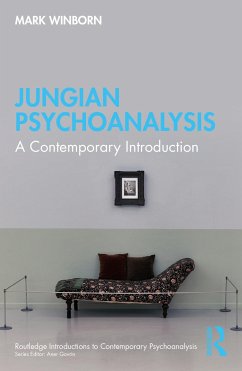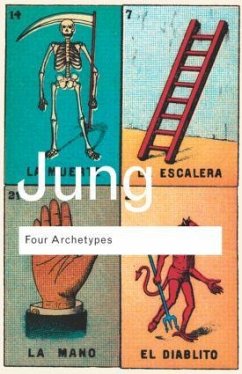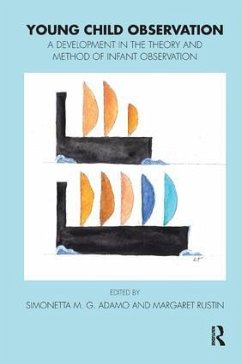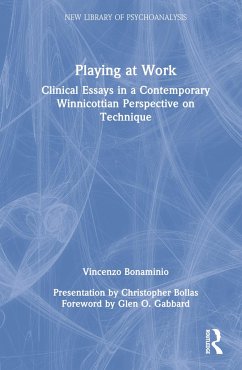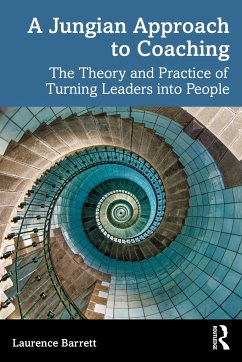Michael Fordham was a towering figure who introduced the developmental viewpoint and child analysis into Jungian thinking. He also fostered an ethos of mutually enriching collaboration with those of other theoretical persuasions. Elizabeth Urban's book builds on this endeavour. She is widely known as a sensitive and creative clinician, and here the reader has the opportunity to follow her interrogation of her clinical and observational practice in the light of formulations by Fordham, Jung, Freud, Klein, Bion and Winnicott as well as infant researchers such as Trevarthen and Stern. Urban often addresses topics that are little explored or difficult to conceptualise - primary identification and Fordham's "working from the self", for example -
and what she has to say is illuminating and original. This book will be of interest to practising clinicians as well as trainees, and to all those concerned with Jungian and psychoanalytic thought, with theory building, and with the foundations of the self. -
Maria Rhode,
Emeritus Professor of Child Psychology, Tavistock & Portman NHS Foundation TrustThis is a helpful book firstly because there has not been very much written about Michael Fordham's theoretical and clinical model as well as his significant innovations in Analytical Psychology, and secondly because Elizabeth had a close professional relationship with Fordham that spanned over a long period of time. I met Elizabeth in the 1970's during my own analytical training with Fordham, and she has always impressed me as a very devoted and conscientious follower of Fordham and his ideas. She both has an excellent understanding of his model as well as a clear way of communicating and expanding upon it with the integration of infant observation work, infant research, and psychoanalytical theory especially of Freud, Klein, Bion and Winnicott. Fordham believed very strongly in the integration of psychoanalytic theory into analytical psychology but he had less knowledge and experience in the area of infant research and he himself did not conduct his own infant observation but relied on the work of his students in the seminars that he taught over many years with Gianna Williams at the SAP (Society of Analytical Psychology). -
Brian Feldman, PhD, Senior Training Analyst
for Inter-Regional Society of Jungian AnalystsElizabeth Urban, an experienced clinician and teacher, is a knowledgeable student of the work of Michael Fordham, having studied with him, over many years. She brings to her understanding of Fordham's original contributions to Jungian child development her integration of the research and clinical studies of other psychologists, and neuro scientists. This work is a significant addition not only to Fordham's work but to our understanding of infant and child development. This approach illuminates how we come to realize our individuality. Her work evidences the surges of development that occur in infancy, its impact on consciousness, a sense of self, language and social awareness. Like Fordham she has conceptualised her clinical discoveries into a Jungian metapsychological model of how the infant's mind emerges. If Fordham left an outline of a model, it has been Elizabeth Urban's task to fill this in with detailed clinical and observational material. Her work has implications for assessment, treatment, and the appropriateness of different kinds of intervention when development is delayed. Elizabeth Urban's capacity to present clearly complicated ideas makes her work an invaluable addition to the literature of child development, and the realization of the self from a Jungian perspective. -
James Astor,
Emeritus Training Professor of Society of Analytical PsychologyWhen I first heard about Fordham's work, I was studying in Zurich in 1959 when Jung was still alive. I heard that Fordham approach to Jung's ideas was creating a new ground that would open up to analytic work with children. Nobody was in the least interested in analytic work with children at the Jung Institute in Zurich. My experience of work at the SAP in London ,with students influenced by Fordham's work and with Fordham himself gave me the experience that one could exchange ideas about early development and object relations and discover that they could be integrated with Jung's theory. This is the core of Fordham's creative work and it is the core of Elisabeth Urban's beautiful book. Jung was explicitly focussing on the second half of life. Fordham opened up Jungian theory to the first and even the very early half of life. Elisabeth Urban's book captures the originality of Fordham's developments as an extremely creative Post Jungian. -
Gianna Williams,
Child Psychotherapist and Psychoanalyst, Tavistock ClinicI could try to puff this book by praising Elizabeth's unusually penetrating thinking about Fordham's contribution to Jung's archetypal theory as it pertains to infancy and the self. I could point out her gifts of symbolic understanding and interpretation and their effects on the healing of her patients. But I'd rather say that I wish I had had this text when I was training and working as a child psychotherapist. And I'd like to recall the help that she gave me with a 14-year old girl who left me feeling rebuffed and fixed in a state where it was impossible to reach her. In a phone discussion Elizabeth loosened my thinking which had got stuck, as though fixed in the girl's dream image that Elizabeth understood as depicting a self object. I was able to write up the ensuing material and pass on Elizabeth's insights at a Berlin-London conference and in a published paper. To me her book is invaluable. -
Miranda Davies,
retired Professional Member of the Society of Analytical PsychologyThis remarkable book shares deep insights into infancy and the mother-baby relationship. The author has worked with Michael Fordham during his last ten years of life, discussing observations of her clinical work with mothers and babies as well as her work with adult and child patients. Based on forty-five years of clinical experience, Urban makes a unique contribution through demonstrating typical, universal (archetypal) patterns of behaviour at significant points of development during the first two years of infants' lives. She significantly augments Fordham's modified theories through her descriptions of clinical work elaborating upon and applying his theories. -
Jeanne Magagna,
Psychotherapy Services, Great Ormond Street Hospital